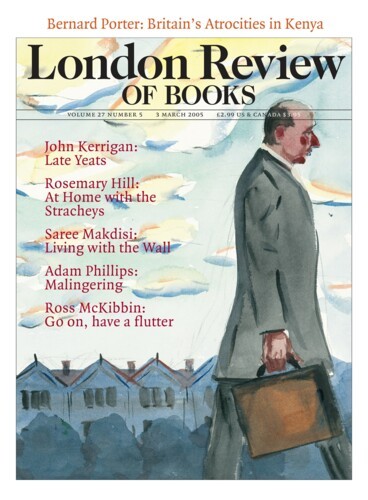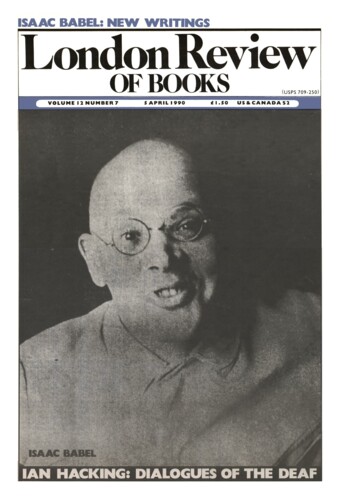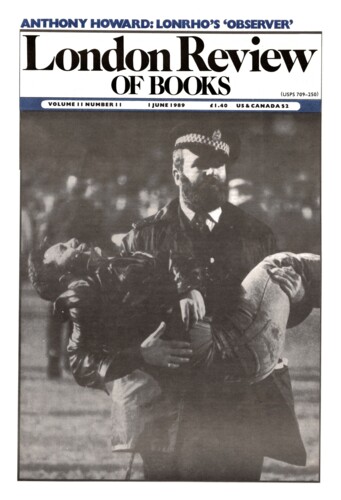Calcutta in the Cotswolds: What did the British do for India?
David Gilmour, 3 March 2005
‘Certain families,’ Kipling wrote in his story ‘The Tomb of His Ancestors’, ‘serve India generation after generation as dolphins follow in line across the open sea.’ It was common indeed for three generations of the same family to spend their careers in India; often it was four, sometimes five, occasionally six. A number of Britons (or Anglo-Indians as they...





